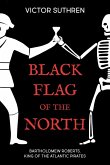During the American Revolution and the border conflicts that followed, Simon Girty's name struck terror into the hearts of U.S. settlers in the Ohio Valley and the territory of Kentucky. Girty (1741-1818) had lived with the Natives most of his life. Scorned by his fellow white frontiersmen as an "Indian lover," Girty became an Indian agent for the British. He accompanied Native raids against Americans, spied deep into enemy territory, and was influential in convincing the tribes to fight for the British.
The Americans declared Girty an outlaw. In U.S. history books he is a villain even worse than Benedict Arnold. Yet in Canada, Girty is regarded as a Loyalist hero, and a historic plaque marks the site of his homestead on the Ontario side of the Detroit River.
In Native history, Girty stands out as one of the few white men who championed their cause against American expansion. But was he truly the "White Savage" of legend, or a hero whose story was twisted by his foes?
The Americans declared Girty an outlaw. In U.S. history books he is a villain even worse than Benedict Arnold. Yet in Canada, Girty is regarded as a Loyalist hero, and a historic plaque marks the site of his homestead on the Ontario side of the Detroit River.
In Native history, Girty stands out as one of the few white men who championed their cause against American expansion. But was he truly the "White Savage" of legend, or a hero whose story was twisted by his foes?
Dieser Download kann aus rechtlichen Gründen nur mit Rechnungsadresse in A, D ausgeliefert werden.









